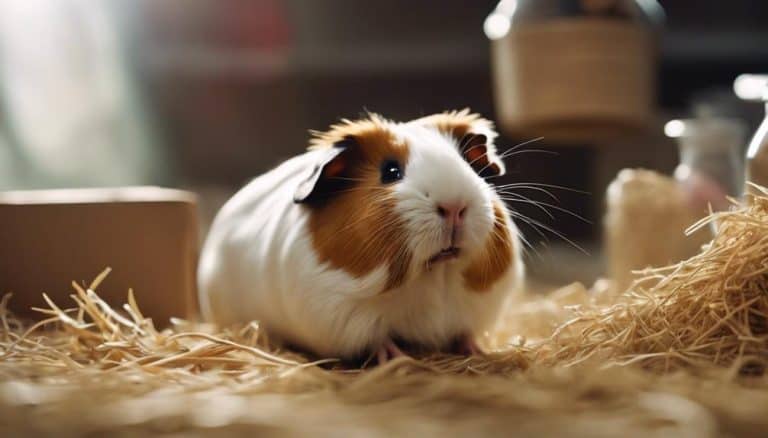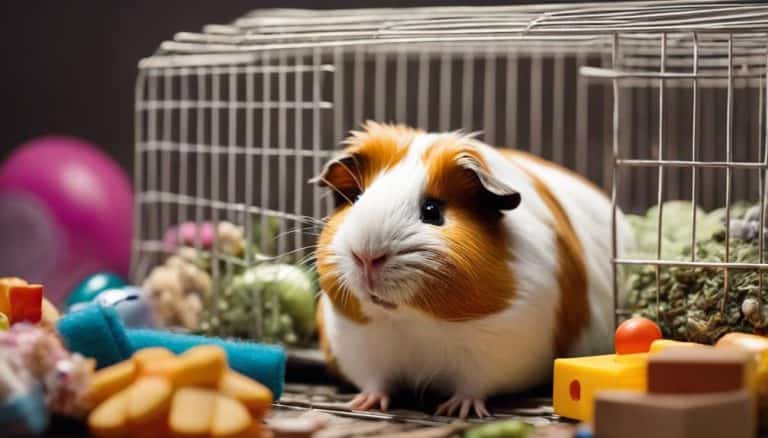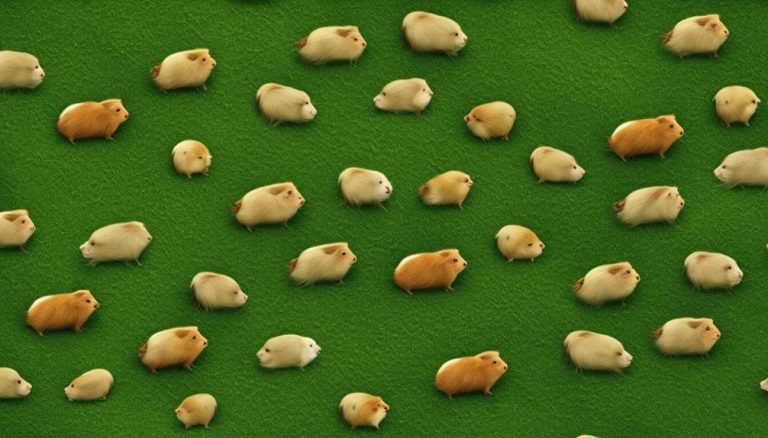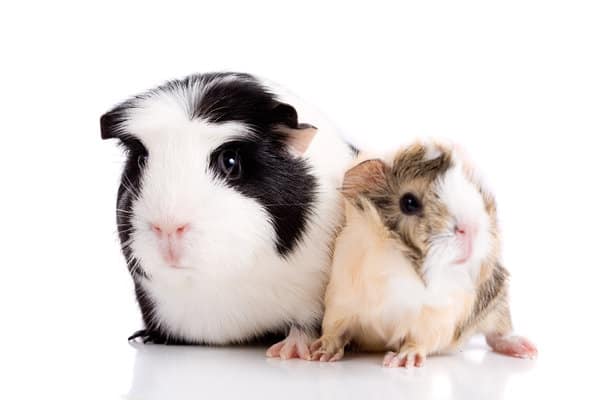When Is a Guinea Pig Too Old to Breed
Are you curious about when a guinea pig is too old to breed? Well, gather ’round, fellow guinea pig enthusiasts, because we’ve got the answers! In this informative article, we’ll explore the age considerations, reproductive health issues, genetic concerns, and behavioral changes that can impact a guinea pig’s ability to breed.
So, if you’re a part of our guinea pig community and want to ensure the well-being of these adorable creatures, read on to discover the recommended retirement age for guinea pig breeders.
Key Takeaways
- Female guinea pigs should be bred between 4-6 months old to ensure their reproductive systems are fully functional.
- Male guinea pigs should be bred at around 3 months old to minimize the risk of reproductive issues.
- Age can increase the risk of fertility problems in guinea pigs, so breeding them too late in life should be avoided.
- Genetic testing and responsible breeding practices are important to prevent the spread of harmful genetic traits and ensure the overall health of guinea pigs.
Age Considerations
We need to consider the age of our guinea pig when deciding whether or not to breed them. As guinea pigs age, their fertility declines, making successful breeding less likely.
Female guinea pigs reach sexual maturity as early as 2 months old, but it is recommended to wait until they are at least 4-6 months old before breeding. This allows their bodies to fully develop and reduces the risk of complications during pregnancy and birth.
Male guinea pigs, on the other hand, can breed as early as 3 weeks old, but it is generally advised to wait until they are at least 3 months old to ensure their reproductive systems are fully functional.
Breeding guinea pigs too late in their life can lead to health risks such as difficulties in conception, pregnancy complications, and increased chances of birth defects. It is important to prioritize the well-being of our guinea pigs and consider their age when making breeding decisions.
Reproductive Health Issues
In our experience, it’s important to be aware of potential reproductive health issues in guinea pigs. These small creatures can be prone to fertility problems and hormone imbalances, which can affect their overall well-being. Here are some key points to consider:
- **Age:** As guinea pigs age, their reproductive systems may become less efficient, increasing the risk of fertility problems.
- **Diet:** Providing a balanced diet rich in essential nutrients can help support reproductive health.
- **Stress:** High levels of stress can disrupt hormone levels and lead to reproductive issues. Creating a calm and comfortable environment is crucial.
- **Regular check-ups:** Regular veterinary check-ups can help detect any potential reproductive health issues early on and ensure prompt treatment.
- **Breeding practices:** Responsible breeding practices, such as avoiding excessive breeding and allowing sufficient recovery time between pregnancies, can help prevent hormone imbalances and related reproductive problems.
Genetic Concerns
As pet owners, it’s important to be aware of any potential genetic concerns that may affect the health of our guinea pigs. Genetic testing can provide valuable information about the genetic makeup of our pets and help us make informed breeding decisions. By identifying any potential genetic disorders or diseases, we can ensure that we are not passing them on to future generations.
Breeding limitations may need to be implemented to prevent the spread of harmful genetic traits. This can involve choosing suitable mates for our guinea pigs, based on their genetic profiles, and avoiding breeding pairs that have a high risk of passing on genetic disorders. By being proactive and responsible in our breeding practices, we can promote the overall health and well-being of our beloved guinea pigs.
Behavioral Changes
Our guinea pigs’ behavior can change over time, so it’s important to pay attention to any signs of unusual behavior. As our furry friends age, they may experience certain behavioral changes due to the natural aging process and hormonal imbalances. These changes can provide important insights into their health and well-being. Here are some key behaviors to observe:
- Decreased activity levels: Older guinea pigs may become less active and prefer to spend more time resting.
- Changes in appetite: They may show a decrease or increase in appetite, which could be a sign of underlying health issues.
- Altered sleep patterns: Older guinea pigs may sleep more during the day and be less active during the night.
- Increased aggression: Hormonal imbalances can cause changes in behavior, including increased aggression towards other guinea pigs or humans.
- Urinary problems: Aging guinea pigs may experience bladder issues, leading to changes in urination patterns or discomfort.
Recommended Retirement Age
When determining the recommended retirement age for our furry friends, we should consider their individual health and well-being. Guinea pigs, like any other living beings, have unique needs as they age. Retirement benefits for guinea pigs include a comfortable and stress-free environment where they can relax and enjoy their golden years.
Senior living options for guinea pigs often involve providing them with spacious cages, soft bedding, and a variety of enrichment activities to keep them mentally stimulated. It is essential to monitor their physical health closely and make necessary adjustments to their diet and exercise routine. Some guinea pigs may require additional medical care or specialized diets as they get older.
By considering their individual needs and providing appropriate retirement benefits, we can ensure that our furry friends live their remaining years in comfort and happiness.
Conclusion
In conclusion, it is important to consider various factors when determining if a guinea pig is too old to breed. Age, reproductive health, genetic concerns, and behavioral changes all play a role in this decision. One interesting statistic to note is that female guinea pigs reach sexual maturity at just 2-3 months of age, but it is generally recommended to retire them from breeding around 6-8 months to ensure their well-being and prevent any potential complications.







